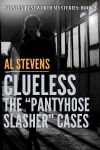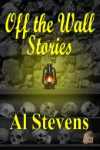Adult vs Family Comedy: Standards of Morality
Those who champion family comedy and denegrate adult comedy often form some kind of imaginary moral scale upon which adult comedy occupies a lower position. The imagined higher ground is, in their view, morally superior to the choices that others make.
(It's called being "holier than thou." Or, in this case, than me.)
Then, to nail down the purity and superiority of, and thus their dedication to and belief in, clean material, they hold up as examples the work of past comedy masters such as Bob Hope, Red Skelton (they always use him), Sid Caesar, Milton Berle, and others who forged successful TV careers without ever uttering a single on-air expletive or sexual innuendo.
First, those squeaky clean comedians from days of yore used clean material on TV because they had no choice. Censors watched their every word. Those who saw nightclub and casino performances by some of the same performers often had a different experience. So much for that.
Second, I disagree with the moral issue or that there even is one. Adult comedy is not morally deficient. We are talking about words and ideas here, words and ideas that are about what all people do routinely as often as they need to. We do the things we aren't suppose to talk about. What sense does that make?
Comedy feeds a human need to deal with things that generate anxiety. That's its purpose. We laugh about the things we fear. Think of any joke you know, adult or family in content, and look at its underlying premise. Most jokes are about things happening that we fear and things we do or wish we could do that make us feel ashamed.
Now for a comparison. Suppose you know a joke that uses the explicit name of a soft, mushy, disgusting substance that comes out of a person's bodily orifice with regularity. The word itself makes people laugh nervously, particularly when it is spoken by someone who is not expected to use such words, someone like the person represented by a puppet. Could you tell this joke to an audience of children? Could you tell it in church? At a PTA banquet?
You couldn't? Why not? You probably already have. The word is....
...booger.
So, what's the difference?
Sex is funny. Actually, it's fun, but as a topic of conversation it can be funny.
Sex is funny when a little child seems to know about it. We all laugh when our children innocently say things with unintended sexual meaning. "Where did he get that?" It's funny because we worry about our kids learning about sex too early. It's funny because we worry about our daughters getting pregnant and our sons having to support families before their time. It's funny because it addresses those fears.
Sex is funny when an elderly person expresses an interest in sex and discusses personal sexual exploits. Jokes about Viagra are funny. They are funny because men fear impotence and (some) women fear a new generation of regenerated horny old men running around pestering them. These jokes, like all jokes, address fears.
Body parts are funny. Anything you have to cover in public is funny. We give these parts funny names so we can discuss them without getting clinical—which is definitely off-limits—then we make the funny names themselves off-limits in family venues. Body parts are funny because we fear discussions of them because we don't want others imagining what ours look like. A family ventriloquist's dummy can react to the suppository in his ear by saying, "I think I know where I lost my hearing aid," but he cannot tell the joke that begins, "I went to the doctor. There was a string hanging out of my asshole."
So, what's the difference?
Bodily functions are funny. Anything you can't do in public is funny. They're funny because they embarrass us, which translates into a fear that others will think about, or, worse, actually see us doing those functions. A family comedian can joke that he takes a gallon of prune juice to fight a cold because it makes him think twice about coughing. But he can't tell the adult comedian's joke about hitting the fan with his excrement.
So, what's the difference?
A baby puppet can use its water spray mechanism to pee all over the front row, but the same ventriloquist can't have a drunk puppet who says, "I unbuttoned my vest, pulled out my necktie, and pissed my pants."
So, what's the difference?
Incontinence is funny. The notion of an adult messing his or her underpants makes us laugh. We fear the inevitable time when we are in the same boat. Oddly, if an adult comedian tells a joke about incontinence, it's considered "dirty," but when a family comedian tells the same joke, it's okay as long as the comedian omits the graphic language.
So, what's the difference?
Dementia is funny. When an old man forgets his wife's name or where he lives, we make a joke about it. Depending on the joke, it's appropriate for either adult or family audiences, but the premise is the same and the image that the joke conjures is the same.
So, what's the difference?
The gay lifestyle is funny. Straight people fear the gay lifestyle because it threatens their notion of right and wrong. How can what those folks do to one another be right? Worse, what if one of them wants to do it to one of us? Egad! Even worse yet, and almost unbearable to contemplate, what if their advances stimulate our latent, suppressed tendencies and turn us, even for a fleeting moment, into the very thing we fear and despise? We're talking about suicide here; what choice do we have? And what about the unbearable shame if, heaven forbid, one of our children or parents turns out to be gay? This is the daddy of all fears. So we make jokes about it. "Two queers walked into a bar..." But these people whom we fear and disapprove of were created by the same force, deity, whatever you prefer, that created us. How can that be? Did God make a mistake? How can that be, indeed? Such a notion shakes the very foundations of our faith, which, apparently, can't withstand much such shaking. So we fear these notions. And, as usual, we deal with our fears when we joke about them.
So, what's immoral about dealing with our fears so they don't worry us into an early grave? Seems like a healthy practice to me.
So, the point is, whatever kind of comedy you choose is okay. But please don't say, please don't imply, please don't even think that because you choose innuendo and euphemisms over explicit language, because you choose not to tell my kind of comedy, and because of our differing choices, that you are somehow morally superior and that your standards are higher than mine. That's just plain bullshit, er, I mean, bovine droppings.
(It's called being "holier than thou." Or, in this case, than me.)
Then, to nail down the purity and superiority of, and thus their dedication to and belief in, clean material, they hold up as examples the work of past comedy masters such as Bob Hope, Red Skelton (they always use him), Sid Caesar, Milton Berle, and others who forged successful TV careers without ever uttering a single on-air expletive or sexual innuendo.
First, those squeaky clean comedians from days of yore used clean material on TV because they had no choice. Censors watched their every word. Those who saw nightclub and casino performances by some of the same performers often had a different experience. So much for that.
Second, I disagree with the moral issue or that there even is one. Adult comedy is not morally deficient. We are talking about words and ideas here, words and ideas that are about what all people do routinely as often as they need to. We do the things we aren't suppose to talk about. What sense does that make?
Comedy feeds a human need to deal with things that generate anxiety. That's its purpose. We laugh about the things we fear. Think of any joke you know, adult or family in content, and look at its underlying premise. Most jokes are about things happening that we fear and things we do or wish we could do that make us feel ashamed.
Now for a comparison. Suppose you know a joke that uses the explicit name of a soft, mushy, disgusting substance that comes out of a person's bodily orifice with regularity. The word itself makes people laugh nervously, particularly when it is spoken by someone who is not expected to use such words, someone like the person represented by a puppet. Could you tell this joke to an audience of children? Could you tell it in church? At a PTA banquet?
You couldn't? Why not? You probably already have. The word is....
...booger.
So, what's the difference?
Sex is funny. Actually, it's fun, but as a topic of conversation it can be funny.
Sex is funny when a little child seems to know about it. We all laugh when our children innocently say things with unintended sexual meaning. "Where did he get that?" It's funny because we worry about our kids learning about sex too early. It's funny because we worry about our daughters getting pregnant and our sons having to support families before their time. It's funny because it addresses those fears.
Sex is funny when an elderly person expresses an interest in sex and discusses personal sexual exploits. Jokes about Viagra are funny. They are funny because men fear impotence and (some) women fear a new generation of regenerated horny old men running around pestering them. These jokes, like all jokes, address fears.
Body parts are funny. Anything you have to cover in public is funny. We give these parts funny names so we can discuss them without getting clinical—which is definitely off-limits—then we make the funny names themselves off-limits in family venues. Body parts are funny because we fear discussions of them because we don't want others imagining what ours look like. A family ventriloquist's dummy can react to the suppository in his ear by saying, "I think I know where I lost my hearing aid," but he cannot tell the joke that begins, "I went to the doctor. There was a string hanging out of my asshole."
So, what's the difference?
Bodily functions are funny. Anything you can't do in public is funny. They're funny because they embarrass us, which translates into a fear that others will think about, or, worse, actually see us doing those functions. A family comedian can joke that he takes a gallon of prune juice to fight a cold because it makes him think twice about coughing. But he can't tell the adult comedian's joke about hitting the fan with his excrement.
So, what's the difference?
A baby puppet can use its water spray mechanism to pee all over the front row, but the same ventriloquist can't have a drunk puppet who says, "I unbuttoned my vest, pulled out my necktie, and pissed my pants."
So, what's the difference?
Incontinence is funny. The notion of an adult messing his or her underpants makes us laugh. We fear the inevitable time when we are in the same boat. Oddly, if an adult comedian tells a joke about incontinence, it's considered "dirty," but when a family comedian tells the same joke, it's okay as long as the comedian omits the graphic language.
So, what's the difference?
Dementia is funny. When an old man forgets his wife's name or where he lives, we make a joke about it. Depending on the joke, it's appropriate for either adult or family audiences, but the premise is the same and the image that the joke conjures is the same.
So, what's the difference?
The gay lifestyle is funny. Straight people fear the gay lifestyle because it threatens their notion of right and wrong. How can what those folks do to one another be right? Worse, what if one of them wants to do it to one of us? Egad! Even worse yet, and almost unbearable to contemplate, what if their advances stimulate our latent, suppressed tendencies and turn us, even for a fleeting moment, into the very thing we fear and despise? We're talking about suicide here; what choice do we have? And what about the unbearable shame if, heaven forbid, one of our children or parents turns out to be gay? This is the daddy of all fears. So we make jokes about it. "Two queers walked into a bar..." But these people whom we fear and disapprove of were created by the same force, deity, whatever you prefer, that created us. How can that be? Did God make a mistake? How can that be, indeed? Such a notion shakes the very foundations of our faith, which, apparently, can't withstand much such shaking. So we fear these notions. And, as usual, we deal with our fears when we joke about them.
So, what's immoral about dealing with our fears so they don't worry us into an early grave? Seems like a healthy practice to me.
So, the point is, whatever kind of comedy you choose is okay. But please don't say, please don't imply, please don't even think that because you choose innuendo and euphemisms over explicit language, because you choose not to tell my kind of comedy, and because of our differing choices, that you are somehow morally superior and that your standards are higher than mine. That's just plain bullshit, er, I mean, bovine droppings.










1 Comments:
Al,
Once again, you hit the nail right on the head. You put down what I have been thinking all along. There are some folks on the list that act all high and mighty. Who are they to judge? F-em. I have a walk around scheduled at the after-prom party at my Son's high school tomorrow night into Sunday Morning. If I can joke around with some high school kids that want to stay out of trouble and not be on the road, my figures will be joking around with the kids and it will be in good taste, but "Iggy" will stretch things a bit. Yor Blog is my new Worldvents when I want to really say how I feel.
Cheers,
Lawrence E. Harris - ComicVent
Your #1 Fan in Maryland
Post a Comment
Subscribe to Post Comments [Atom]
<< Home